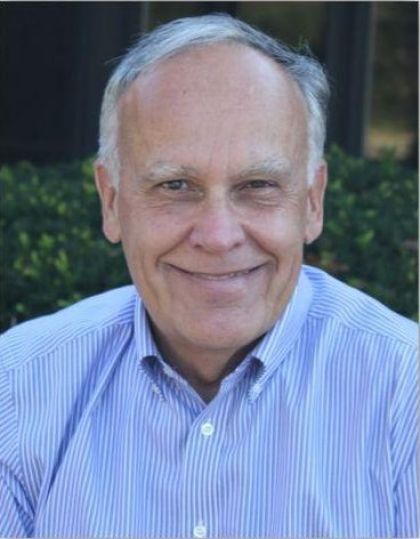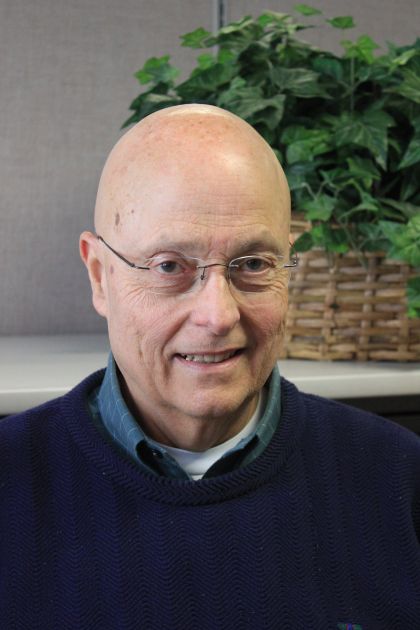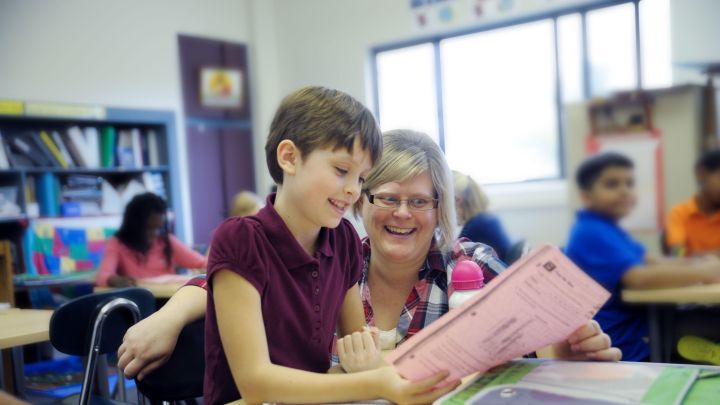ADHD and Your Child: ADHD Experts Address Your Questions
Following our free “ADHD and Your Child” webinar last spring, we received several questions from parents and teachers alike on understanding and supporting persons with ADHD. For National ADHD Awareness Month, we wanted to revisit several of these questions with ADHD experts Doug Bouman, S. Psy. S. and Robert Bulten, M.D. This webinar, hosted by Christian Schools International, covers the symptoms and treatments of ADD/ADHD.
Q: Is ADHD hereditary?
Dr. Bulten: Very much so. It is the second most heritable condition in the human genome. The first is height.
Q: Are there similarities between teenage boys and ADHD? When should we seek testing and treatment for ADHD?
Dr. Bulten: It used to be thought that ADHD in boys far outnumbered that in girls. But we’ve now realized that this is no longer true, and ADHD is common in both boys and girls. During the teen years, the hyperactive component (which is so common in younger boys) tends to become less noticeable. Testing and treatment should be looked into when the symptoms become a functional impairment.
Q: How much does a child's diet help or hinder a child with ADHD?
Dr. Bulten: Diet does not usually have much positive or negative effect on a child with ADHD. Now and then, someone will find a particular food (e.g., dairy, gluten, dyes, etc.) that they believe helps to a degree, and then they take that out of the diet. But the return is so small that I don’t recommend that to start treatment. By the time my patients get to me, they will have tried all the non-medical options.
Q: What are some particular gifts kids or teens with ADHD possess?
Mr. Bouman: ADHD in and of itself provides zero benefits to the student with ADHD. For example, the gift of creativity or artistic ability and ADHD are not linked. However, just like students without ADHD, students with ADHD possess incredible gifts, strengths, and abilities.
Q: Are students with ADD/ADHD more likely highly intelligent and gifted than not?
Mr. Bouman: Students with ADHD are not more gifted and talented than those without ADHD. ADHD impacts the entire range of abilities. In fact, highly intelligent children with ADHD frequently experience more frustration since they are painfully aware that their performance and output are markedly below their intellectual abilities and peer performance. How frustrating and painful for a bright student to “know” what to do, yet are unable “to do what they know.”
Q: Do you see the emotional issues, such as loss of confidence and "self prosecution" (especially in newly diagnosed teenagers) improve over time?
Mr. Bouman: Yes, for sure. The first step is for the teenager and the significant adults (parents, school staff, etc.) to understand and accept ADHD and how it is impacting this student’s daily functioning. Once effective strategies and medication are in place, the student experiences authentic success (i.e., they can now “do and produce what they know”). This frequently buoys their confidence and eliminates their self-persecution.
Q: What is one thing you wish parents knew about ADHD?
Mr. Bouman: There is a tremendous amount of misinformation in the media, trade magazines, etc. Parents need to know ADHD hugely impacts a student’s learning and productivity in school even though their child is not hyperactive or impulsive. Quiet, hidden (inattentive type) ADHD is more dangerous since it is easily missed or misinterpreted as not trying or a bad attitude. Complicating things is the remarkable inconsistency observed in a student with ADHD, sometimes called a “picket fence” up-down functioning. Children, adolescents, and adults with ADHD are frequently able to focus and sustain concentration if what they are doing is preferred, highly stimulating, and high interest (think video games, legos, T.V., even reading high-interest books). The real test of an individual’s attention is when they must complete tasks that are important yet boring. Another important parent “tip” is to watch for limited improvement (e.g., learning, producing, grades, behavior) when individuals, students, teachers, and school support staff have honestly tried their best to overcome the problem using methods that work for most kids.
Dr. Bulten: Probably that they are not the cause of their kid’s ADHD – unless you consider the genetics. It’s not bad parenting--more discipline will not change things—it will probably make things worse.
Q: What are a few practical strategies a teacher can use in the classroom to support a student with ADHD?
Mr. Bouman: Move the student close to the teacher. Having the student in close physical proximity to the teacher affords closer monitoring of the student and increased accountability. Teachers can cue the student that important directions are coming their way (e.g., “Students, the next two instructions are really important” – sometimes referred to as “verbal highlighting”). Close proximity also allows ongoing accountability with high-frequency feedback (e.g., “Do this first row of math computations and then check back with me”).
Students with ADHD need understanding and empathy from their teachers; their teacher needs to recognize that they are fighting upstream against a roadblock that their peers are not. Teachers can create a “prosthetic classroom” by externalizing (making visible and permanent) instructions, requirements, rules, and steps (e.g., using Post-it notes, lists, and pictures).
Q: What is one thing you wish teachers knew about ADHD?
Mr. Bouman:
(1) All of what I wish parents knew (see above)
(2) Please be careful to simply and thoroughly report to parents what you notice in class and avoid saying a student has or does not have ADHD.
Dr. Bulten: Again, they are not the cause of the student’s ADHD. “Carrot and stick” discipline will not change anything.
Q: What is one thing you wish kids/teens knew about ADHD?
Mr. Bouman: Kids really like the truth about how ADHD is negatively impacting the use of their gifts. Many students have conjured up something far worse (e.g., “I’m stupid,” “I’m dumb”) than ADHD. Kids need to understand ADHD is not their fault any more than it is their fault for having brown eyes. Kids need to know there are effective interventions that can ‘even the playing field’ for them. They need to know that things will improve and there is great hope for the future.
Dr. Bulten: I wish kids with ADHD knew they were not lazy. As I interview adults with ADHD and ask them what one comment they remember their parents and teachers said was, “If you would only try harder. You have so much potential and you just don’t apply yourself.” If we could measure “effort,” especially in young kids, we’d find they are trying harder than other kids, and the results are poorer. As they get older, they start to give up, and they stop trying altogether.
Q: What are some practical strategies persons with ADHD can use to accomplish tasks in their daily life?
Mr. Bouman: First, make sure any prescribed medication is at optimal levels. Students and adults with ADHD ideally complete a one or two-page symptom reduction form each time they meet with their physician. Other strategies include:
- Write down your top three non-negotiables for taking good care of yourself.
- Enlisting accountability supports – a trusted friend or life coach.
- Use technology as a workaround.
Q: Do you have any recommended books or websites to learn more about ADHD?
Mr. Bouman: The best organization with incredible resources is CHADD – Children and Adults with Attention Deficit/Hyperactivity Disorder.
The best book for adults is Reaching for a New Potential: A Life Guide for Adults with ADD From a Fellow Traveler by Oren Mason. Also, check out Dr. Mason’s blog, Attentionality.
At All Belong, we evaluate and create plans for struggling students based on their strengths and areas of need. Learn more about our perspective in this video, and visit our website to learn more.
And, of course, Dr. Bulten at Behavioral Medicine Clinic does an incredible job monitoring and supporting patients.
Doug Bouman, S. Psy. S. was the director of evaluation services at All Belong, a Nationally Certified School Psychologist, and a Licensed Master’s Social Worker. He is a graduate of Calvin College and Central Michigan University.

Doug Bouman, S. Psy. S.
Robert Bulten, M.D. previously practiced general pediatrics for 12 years and has been practicing behavioral medicine (including ADHD, Autism Spectrum Disorder, and mood disorders) for the past 30 years. He is a graduate of Wheaton College and the University of Michigan Medical School.

Robert Bulten, M.D.

Katie Barkley
Katie Barkley was the marketing and communications manager at All Belong.
